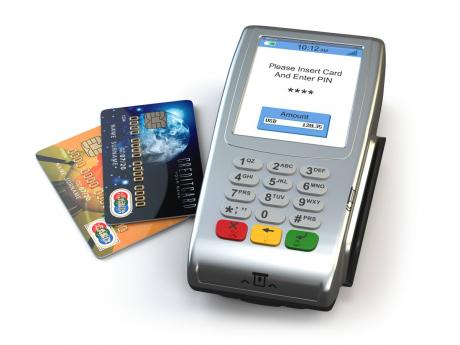Christmas scam alert
Fraud detective Karen Bailey urges increased vigilance during holiday season
Jamaica-born British fraud examiner Karen Bailey is urging Jamaicans to step up their vigilance during the Christmas season when there tends to be a jump in fraudulent activities.
“Protect your banking details. Make sure your credit and debit card never leave your sight of vision. Double-check the cost of goods or services, to make sure it matches receipt amount,” she advised in a Sunday Gleaner interview.
Several persons have complained in recent days that upon checking their receipts, they discovered added sums that did not reflect what they actually purchased.
“Your eyes must never leave your bill, and even when you are scrutinising, it does not hurt to go over it again to make sure there is a correlation between what it purchased and what is withdrawn. I could have been a victim of this recently while in Jamaica and it’s only because I am a stickler for details,” Bailey told The Sunday Gleaner, outlining how she was overcharged in a tourist resort town for goods and services.
“Items were added to the bill that I did not order and they were juxtaposed between my legitimate orders,” she said, now becoming everybody’s checker when she goes out with friends.
Last week, one woman reported losing her bank card at a supermarket and within an hour, her account was cleaned out.
A University of the West Indies student recounted a similar experience, stating that she only realised her credit card was missing when she was notified by email of a purchase.
“I went to the supermarket, my phone rang, and I just scooped up my purchases and went into a waiting car. I thought that the card was with the receipt that I threw in my bag. About 30 minutes later, I got an email that my credit card was used in a popular retail store,” said the student, who gave her name as Deanne.
However, she was unable to speak to a bank agent when asked to call a particular number if she did not make the purchase.
“I just got a recording over and over again from the bank. It was after 4 p.m., so the bank was closed and I could not go to a branch first thing the next day. Within a day, $120,000 was used before I got to the bank. This was in September and it is still not sorted out. Now I have to be using cash, which is not my preferred way,” she said.
She also shared that another friend using a supermarket in Portmore was similarly affected, as the $11,000 she had in her savings account was wiped out.
Deanne was among several people complaining about the hard task of making contact with banking agents.
DUE DILIGENCE
Noting that this is the season for a proliferation of attractive offers, Bailey said people should ignore “unsolicited emails, texts, social media or calls with holiday offers”. They should also ignore suspicious links and attachments in emails, as they may lead to malicious websites or malware.
Persons should also avoid middlemen in doing transactions and seek to only interface directly with a legitimate business website or verified individuals via telephone calls or emails.
For individuals using the popular Airbnb services within Jamaica and where they are unclear about booking and payments, as insufficient information is provided about the location, they should deal directly with the property owner or an agent.
“Ask them questions about the booking, room, location and area. Don’t book on websites that don’t have a padlock icon (https) in the address bar, and be extra cautious if you’re asked to pay using bank transfer or cash; pay by credit or debit card if you can,” she advised.
This is to allow for money tracing should the need arise.
She also urges extra caution when details, pictures or property addresses raise suspicions and when independent website reviews are unfavourable or do not exist.
Individuals conducting house repairs, she said, should examine invoices to see the charges.
“If you are charged GCT on services, ask for the GCT certificate. If the person is not registered, then you should not be charged,” she said.


